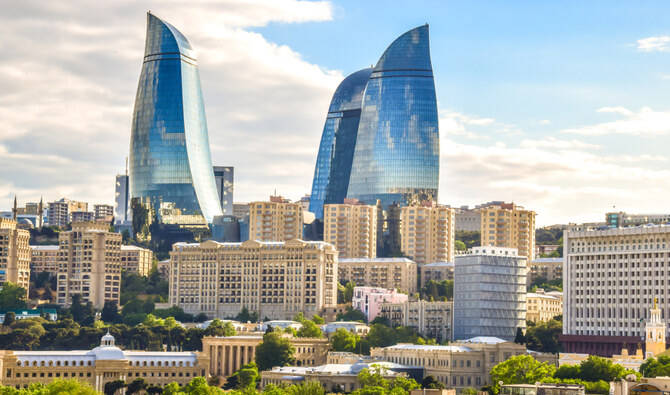The South Caucasus is the crossroads between resource-rich Central Asia and the resource-hungry European economy. Peace between Armenia and Azerbaijan will foster the prosperity not just of Armenians and Azerbaijanis, but of all Eurasia. The resounding victory of Azerbaijan in the Second Nagorno-Karabakh War of 2020 created a historic opportunity to turn the page, leave hostilities behind and normalize relations based on international law.
To seize this opportunity, the West must acquire a better awareness of the irrefutable facts on which the Azerbaijani views are based. Unfortunately, Armenia, its diaspora and foreign supporters have recently launched a propaganda campaign designed to obscure these facts from view. The immediate goal of the campaign is to bring American and European pressure to bear on Baku. The longer-term goal is to scuttle the peace process that began in November 2020, when Armenia acknowledged its defeat in the war.
The disinformation campaign focuses on events along the Lachin road, which links Armenia with the Nagorno-Karabakh region of Azerbaijan, and it advances two main claims. First, that a “blockade” of the road by Azerbaijani environmental activists, which began on Dec. 12, created a humanitarian disaster, endangering the lives of about 25,000 ethnic Armenians in Nagorno-Karabakh. Second, that it is part of a wider effort by Azerbaijan to deny these Armenians their rights and security.
In the trilateral statement of Nov. 10, 2020 — the agreement signed by the leaders of Azerbaijan, Armenia and Russia that brought the Second Nagorno-Karabakh War to an end — Armenia agreed to accept the new reality on the ground and build peace. Ever since, however, it has misused the Lachin road to export from Nagorno-Karabakh to Armenia plundered Azerbaijani mineral resources; built up its military forces in Nagorno-Karabakh; brought in third-country nationals to erect new fortifications; and smuggled in landmines. The threat from landmines continues and 299 Azerbaijanis have become victims of landmine explosions since the end of the 44-day patriotic war in 2020, which is terrorism against Azerbaijanis.
These are not the actions of a country preparing for peace — and Azerbaijan is all too familiar with these tactics. It will not permit Armenia to once again ensnare it in interminable negotiations, all the while preparing for war. As for the Lachin road, the transparency of any movement along it must be immediately guaranteed.
As a result of this, on April 23, the units of the State Border Service of the Republic of Azerbaijan established a border crossing point in its sovereign territory on the border with Armenia, at the beginning of the Lachin-Khankendi road, to ensure the transparency of road traffic, the rule of law and, thus, the safety of traffic. We should state that the mentioned control mechanism is being coordinated with the Russian peacekeeping contingent.
Let us take the misleading claims in turn, starting with the alleged humanitarian crisis. Humanitarian shipments, including medicines, food and other essential goods, move easily into Nagorno-Karabakh. And local civilians with urgent medical or other essential needs can leave for Armenia and return along the road.
To prevent any humanitarian crisis, Baku gave the International Committee of the Red Cross unimpeded access to the road. It is recorded that 614 Red Cross vehicles and 5,178 belonging to Russian peacekeepers have moved freely through the corridor in each direction. The soldiers of Russia, Armenia’s greatest ally, are better placed than any other international actor to reassure Yerevan regarding the physical security of Nagorno-Karabakh Armenians.
Which brings us to the second spurious claim, namely that Azerbaijan is denying ethnic Armenians in Nagorno-Karabakh their rights. Understanding why this is a blatant falsehood requires historical context, though it is quickly told. During the First Nagorno-Karabakh War, which ended in 1994, Armenian forces occupied and ethnically cleansed this region and other surrounding Azerbaijani territories of ethnic Azerbaijanis. More than 800,000 people were driven from their homes in Nagorno-Karabakh, while 250,000 Azerbaijanis were forced to relocate from present-day Armenia, often in the dead of winter, with the Khojaly massacre of 1992 being the peak of this barbarity.
These crimes, committed with impunity and still awaiting justice, were well documented while they happened. In the wake of this, international law and every major power in the world reaffirmed Nagorno-Karabakh as sovereign Azerbaijani territory and the full restoration of effective Azerbaijani control of the region is seen as the basis for a just and lasting peace. For this reason, UN Security Council Resolutions 822, 853, 874 and 884 all demanded the withdrawal of Armenian forces from the territory of Azerbaijan. Even now, 10,000 Armenian troops and as many as 15,000 terrorists and militiamen remain in Nagorno-Karabakh — a time bomb threatening peace and stability.
The UN issued those resolutions in 1993. For nearly three decades, Azerbaijanis have waited patiently for the international community to implement them. Meanwhile, Armenia played for time, just as it is doing now: talking about peace, preparing for war and spreading misinformation. Its forces looted Azerbaijani towns and villages, erasing every sign of Azerbaijani cultural heritage, and plundered its mineral resources. Azerbaijani President Ilham Aliyev has said that Armenia destroyed 65 of the 67 mosques in the territories it occupied. It also kept pigs and cows in mosques in Nagorno-Karabakh .
By 2020, Azerbaijan’s patience had worn thin. In the Second Nagorno-Karabakh War, it demonstrated its resolute determination to reclaim its stolen land.
Time is of the essence. A sane policy that is grounded in reality can still prevent new tragedies. Yerevan must stop relying on dreams and fantasies and deal with hard facts. Armenia and its allies must stop using the Armenians of Nagorno-Karabakh as pawns in a cynical game of power politics. If those involved in facilitating the peace process read the realities accurately, they can help Armenia avoid the mistakes of the past and make the peace of the brave.
-
Shahin Abdullayev is Azerbaijan’s ambassador to Saudi Arabia.












